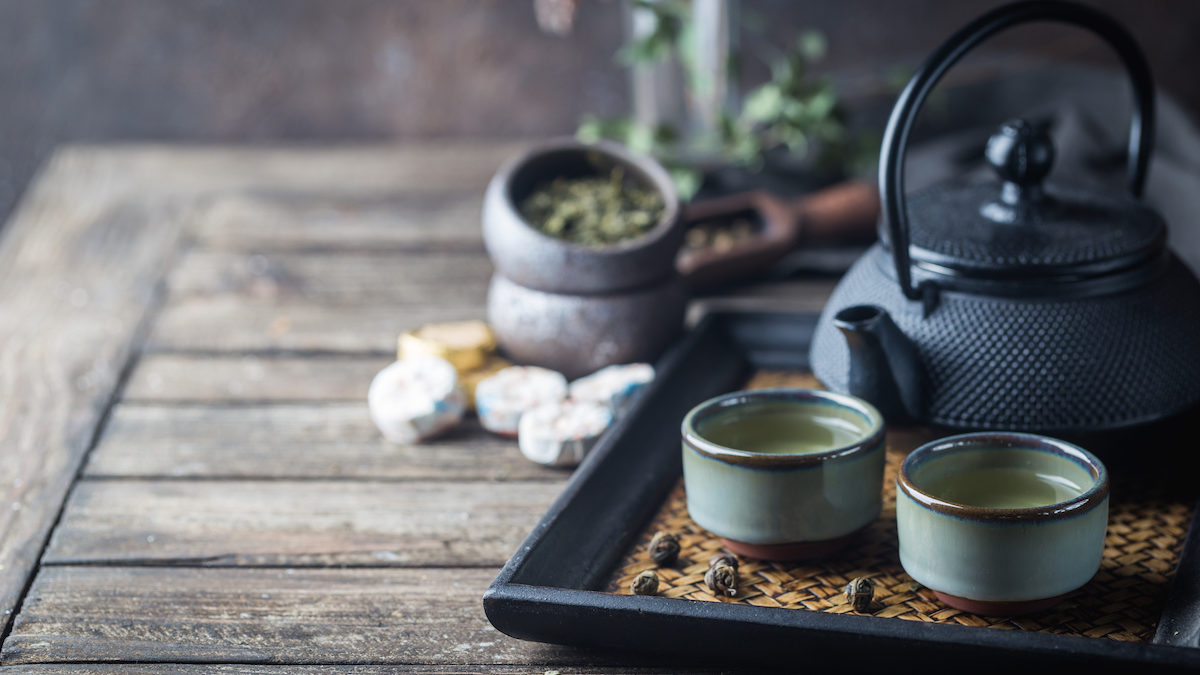Just What Is Vegan Collagen? We Ask a Skincare Doctor for the Skin-Boosting Knowledge

Our skin is important, and not just for looking good in Insta selfies. It’s a barrier between you and a whole host of health threats, like irritants and bacteria, that could cause serious infection, while skin problems are often a sign of underlying health issues. That’s before we even look into the mental health aspects involved, with a 2020 report from the UK government finding 98 per cent of skin disease patients feel their condition affects their emotional and psychological wellbeing. This is all to say a healthy visage tends to equal a healthy person underneath.
Now, one of the key components of our skin is collagen. You’ll have likely heard about this here collagen, either bandied around on the back of skincare creams, or on the side of supplements. But do you actually understand what it is? Ahead of the release of our own innovative vegan collagen beauty supplement, Radiant, we asked skincare expert, medical doctor and member of the Royal College of Surgeons, Dr David Jack, for the lowdown on this important skin-boosting protein.
What Is Collagen?
Collagen is one of the most important proteins in our body, forming a large proportion of the ‘connective tissue’ of our skin, muscles, cartilage, bones, teeth and tendons. Collagen molecules are made up of long chains of amino acids, the building blocks of proteins, so form long linear molecules that provide strength and substance to the different tissues in our bodies.
There are several types of collagen in our body, each with slightly different functions. 90 percent is made up of ‘type 1 collagen’, which is particularly strong. In the skin, collagen is particularly important, forming about 75 percent of the bulk of the dermis layer (alongside other proteins such as elastin and glycosaminoglycans, as well as blood vessels and nerves) — it gives our skin it’s scaffold-like structure and helps protect the deeper structures in the body.
In our bodies, there is a constant turnover of collagen meaning our cells constantly produce new collagen to replace damaged old collagen. Damage can happen as a result of inflammation, wear and tear, and in the skin in particular, UV light can cause collagen breakdown.

As we age, the production of collagen becomes more sluggish, and damage increases with time due to genetic factors, and environmental exposure to things like ultraviolet light (UV), pollution, and internal inflammation, so the balance between production and breakdown becomes more skewed in favour of collagen breakdown.
This in turn causes the skin to thin, with the appearance of lines and wrinkles, and sagging. Blood vessels become more exposed too, so issues like thread veins can appear more prominent, and there is less protection of the structures underneath the skin.
What Are The Benefits of Vegan Collagen Supplements?
Preservation of existing collagen and prevention of breakdown is an interesting area in cosmetic dermatology, with there being an increasing interest in the use of supplements to help boost collagen levels in recent years. While most collagen supplements on the market are animal derived (bovine from cows, marine from fish sources), there are significant issues with the sustainability and carbon footprint of these supplements.
New vegan collagen peptide preparations offer a useful alternative to this — the benefits of collagen supplementation (such as reversal of skin thinning and improvement of skin hydration levels as a result of increased skin hydroxyproline levels) are now possible without the significant damage to the planet as with their animal-derived counterparts.
Many of the benefits of vegan collagen supplements also result from the other ingredients that are used alongside the collagen peptides. The most important of these are vitamin C, an essential cofactor in collagen production, as well as other vitamins and micronutrients including biotin (vitamin B7), copper, zinc, and vitamin A (retinoic acid), each of which are involved in collagen production. Most of these ingredients also function as antioxidants which further help prevent collagen breakdown in the skin.
Can You Boost Collagen Production Through Eating Plant-Based Foods?
There are an abundance of plant-based foods that help boost collagen levels. In particular, brightly coloured fruits and vegetables which are rich in antioxidant polyphenols help to reduce oxidative stress and prevent collagen damage, as well as proactively support collagen and elastin production by the skin’s fibroblast cells.
Strawberries, blueberries and raspberries are exceptionally high in the antioxidant vitamin C, as are guava, pineapple and mango, tomatoes and brightly coloured peppers. In addition to these, other specific ingredients such as matcha green tea are also extremely high in antioxidant activity.

It’s also important to think about getting a sufficient intake of the amino acid building blocks of collagen. Collagen itself is made up of component amino acids including proline, hydroxyproline, alanine and glycine, which are found throughout nature. Although these are not essential amino acids (meaning our bodies can make them from other amino acids), supplementary sources can be useful to ensure you are getting sufficient quantities of these.
Traditionally, animal sources are often used to produce collagen supplements (which are usually in the form of collagen tripeptides), however, increasingly non-animal sources are being used to produce these peptides. These can include peptides derived from white hemp, pumpkin and peas, and chia, for example.
Cut The Sugar
Aside from skincare supplements and products, there are a few lifestyle considerations I’d recommend when thinking about collagen and the skin. Excessive levels of simple sugars in the blood can lead to a process known as glycosylation (or glycation), where sugars bind to collagen and other structures, creating inflammation and collagen destruction. Glycosylation can also be created by molecules known as advanced glycation end-products (AGEs) that are formed when food is dry heated (i.e. fried, grilled/broiled or baked), in particular where there are burnt areas of food that are consumed, while wet heating methods, such as steaming, help to avoid the creation of these molecules.
Radiant combines scientifically-backed nutrients for healthy hair, skin and nails with Coll-egan® for vegan collagen support. An innovative first, Radiant is more than just a beauty supplement, it’s all the nutrients you need to shine.


















